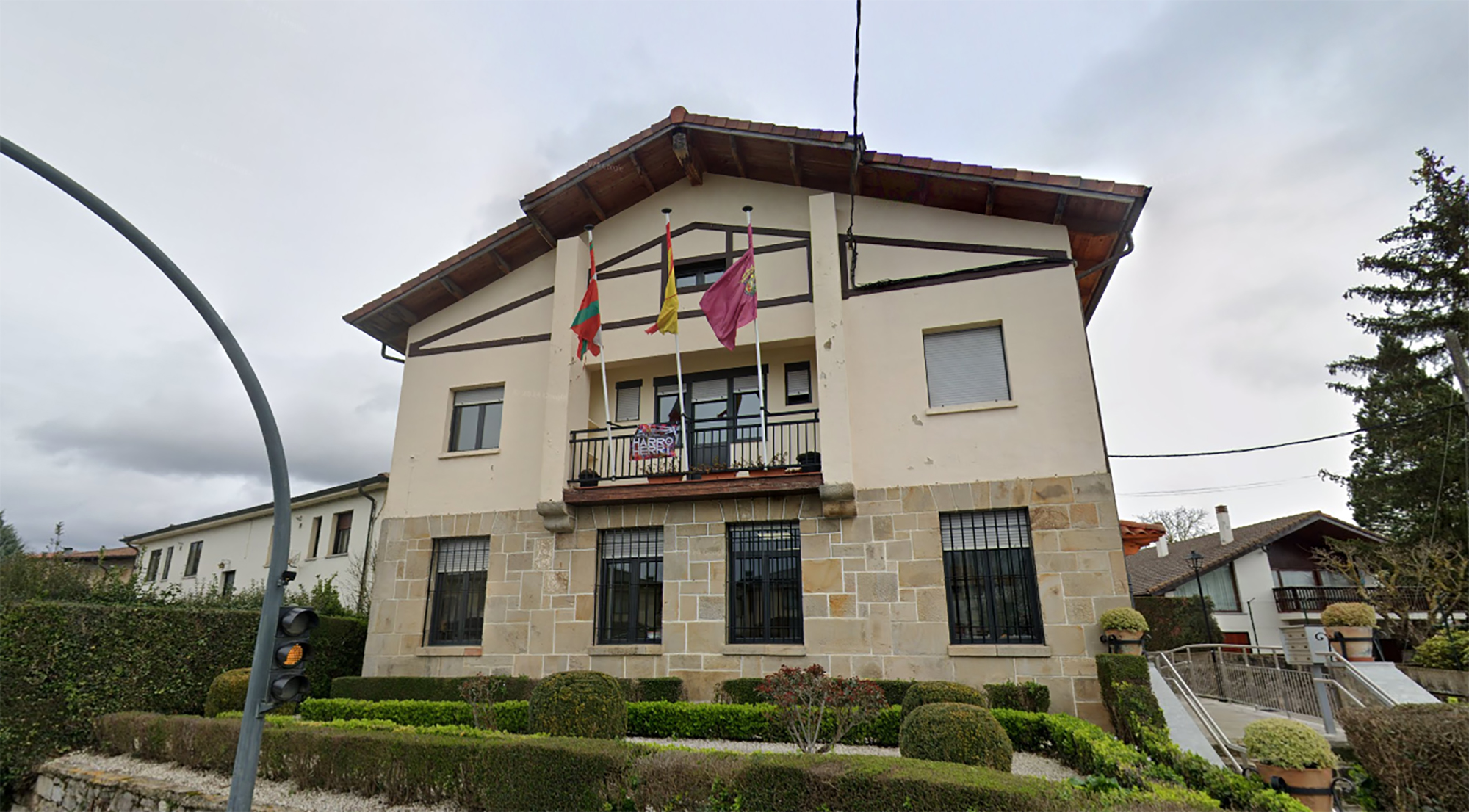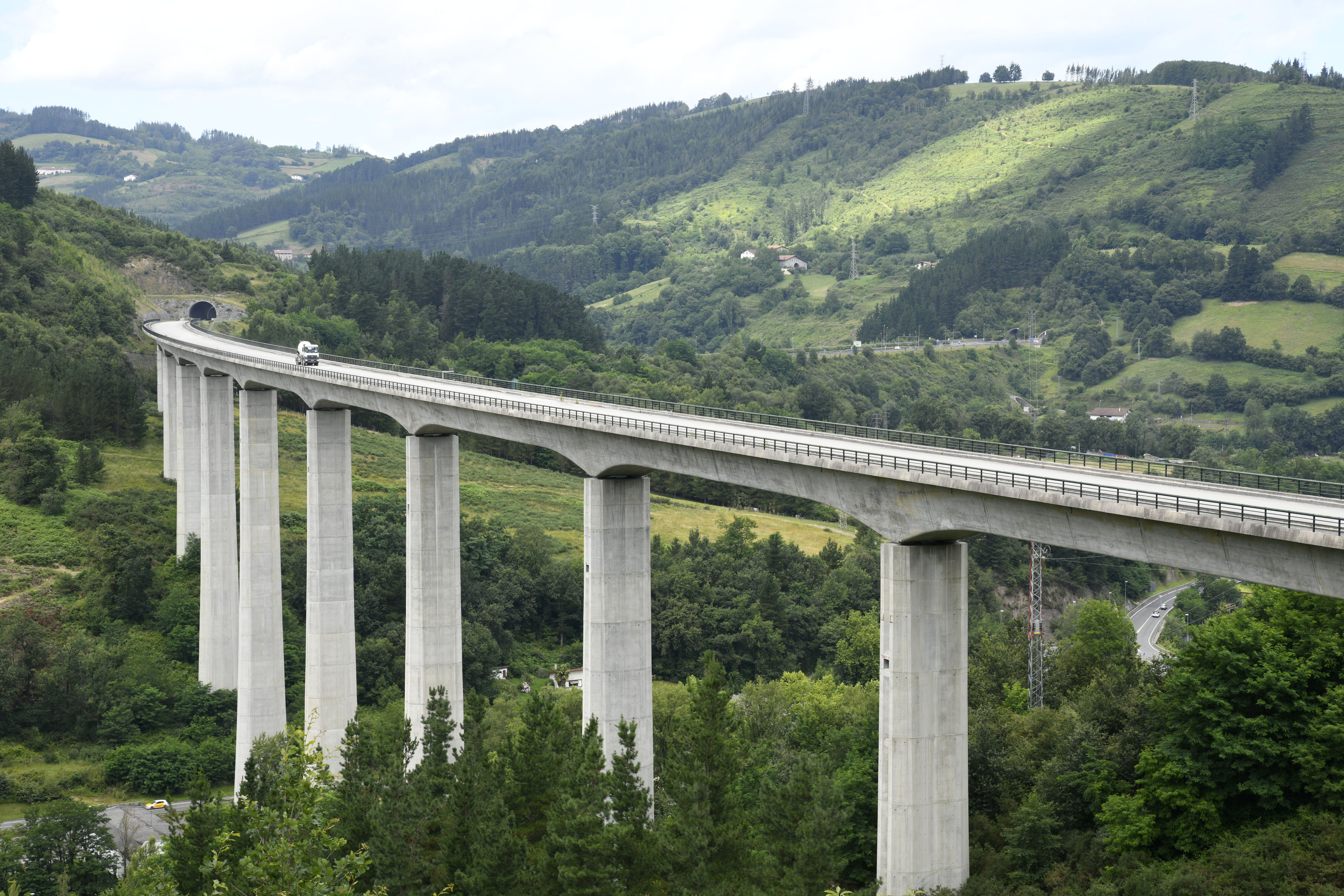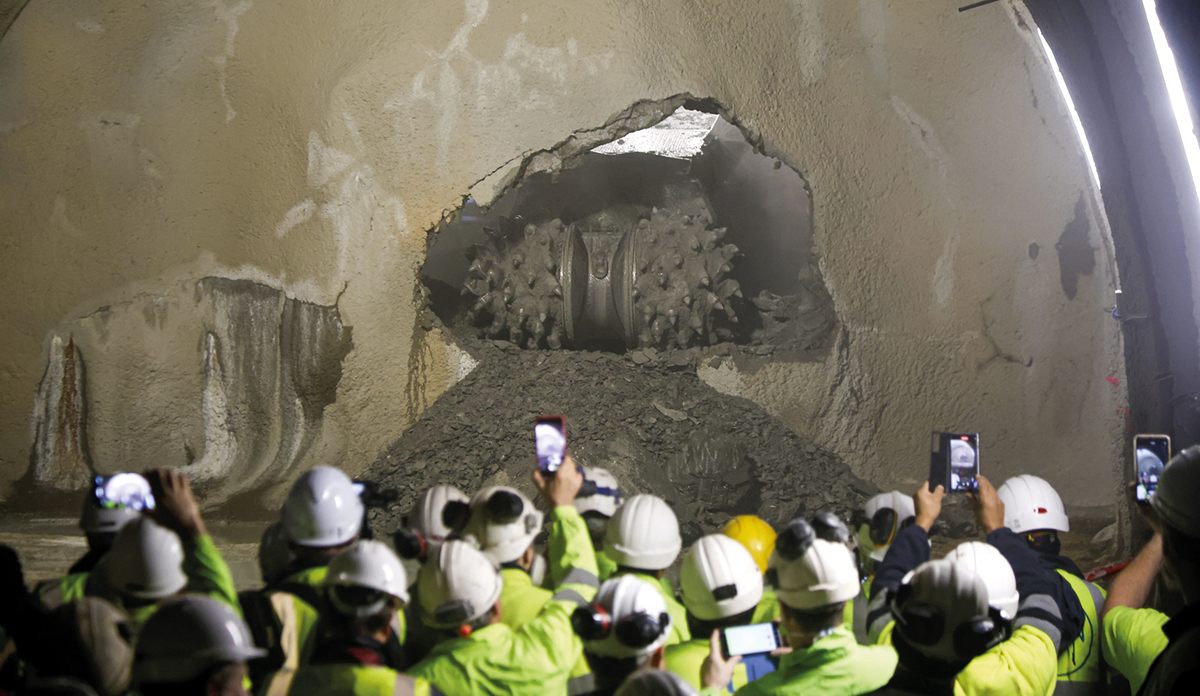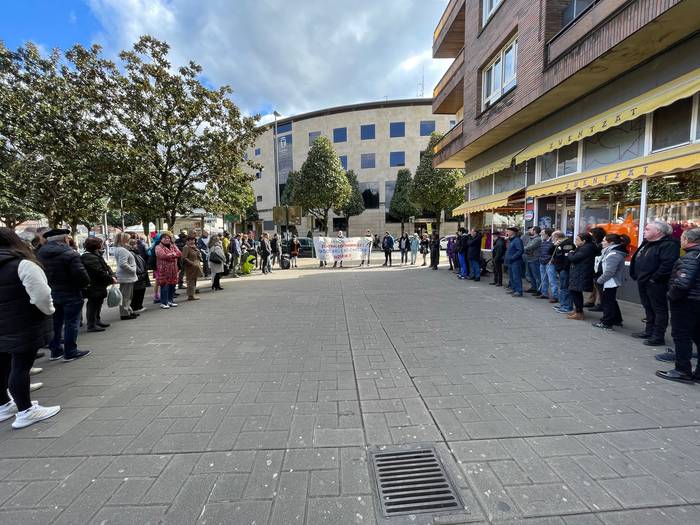"In Brazil, 70% of those affected by reservoirs receive no compensation"
- Organised by different political, trade union and social actors, the III was held in Bilbao last September. The International Meeting reached the Basque Country of Brazil in the shadow of Eco-Socialists Moses Borges, an activist of the MAB (Movement of People Affected by Reservoirs). Borges attended the workshop “Social movements: from the resistance to the transformation of the energy model” to make known the movement it represents, the origin of Iberdrola that causes so many concerns.
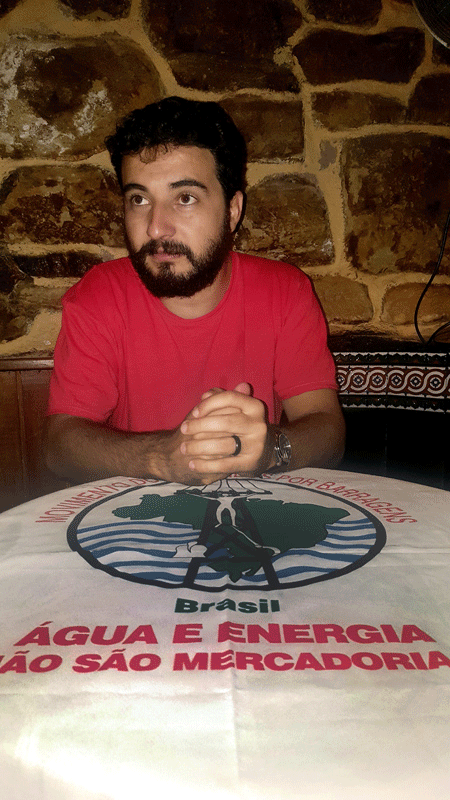
MAB is the Portuguese acronym of the Movement of People Affected by Reservoirs. What is it?
The movement has its roots in Brazil in the 1960s and 1970s. At that time, a large number of hydroelectric dams began to be built in the country. Every swamp that began to be built affected thousands of people, causing enormous social and environmental degradation. Then local struggles began to emerge, here and there, but without any clear connection between them. Brazil is a very large continental country, and we saw the need to unite: if companies had the same strategy for the whole country, we also needed a common strategy for the whole country. We did that in 1991. Today we are all over the territory carrying out our struggles. There is still a long way to go. Over 2,000 dams have been built in recent years, with over 1.5 million people affected and displaced. 70% of them receive nothing, no new land, no compensation…
Helplessness is based on a 1941 law, isn't it?
That is, according to that law, only the owners of the land can be compensated. But the reality in our country is that most of those who have exploited land for over 200 years from generation to generation do not have documents that recognize their property. In many Brazilian communities, this title has never been needed, and that is why there are many problems, because the law does not recognize them as affected. Companies use this law to exert pressure and blackmail.
“Private companies use our natural resources free of charge and force us to pay very much for energy”
What was the political situation in which the work began? If you're not calm...
At that time, Brazil had power under military dictatorship. The only thing the Government had in mind was to do large country works to pretend that the country was developing. In this period, Brazil built the world's largest hydroelectric dam. They put the country into a whirlwind of vanity without thinking about its consequences. Great conflicts were created and many people were persecuted, tortured or eliminated. It was a complicated time, in part in which we are living in recent times, on the occasion of the impeachment against Dilma Roussef, which on 31 August suffered the coup d'état against Brazilian democracy: Vice-President of the Government, Michel Temer, has come to power without the support of the citizens. We are once again in a state of emergency, and we can say that since the end of the military dictatorship in 1985 we have had a very short period of democracy.
What is the relationship between MAB and other movements that have been represented in the MST and Lula and Dilma governments?
MST and MAB are contemporary movements. We say we are brothers of movement. The Lula Government, which is a coalition, did a lot of good things for the citizens, but did more good things for the entrepreneurs and the economic elites. However, they were not satisfied with these benefits and wanted more. For example, we have a law that was passed by Lula and Dilma, which says that some of the benefits of Brazilian oil have to be invested in education and healthcare. This is an amount that can have a huge impact in both areas.
Public money in private hands, therefore...
Chevron, Shell, Exxon and other companies in the sector have an extremely powerful lobby that prevents this investment from being carried out. Moreover, the Minister for International Relations has just said that Petrobras will hurry Chevron [the Petrobras company is semi-public]. That in Brazil is an intolerable attack on sovereignty. The coup d ' état I mentioned earlier, in this regard, must be seen as an international coup d ' état, beyond the offensive of the discontented right-wing forces. There are several companies, including Iberdrola, that want to control and capture all of Brazil’s energy resources. We are not going to allow it, and as they are already in front of us, they have started to impose their agenda. Michel Temer himself has presented for the coming years the programme “A Bridge to the Future” which aims to lead Brazil to immerse itself in the savage neoliberal agenda.

How is the matter now?
Brazil is the third water power in the world, behind China and Russia. To measure it, think that about 80% of the energy Brazil manages comes from this source. In Europe the situation is very different, as there is a great deal of dependence on fossil fuels, nuclear fuels, etc. We have a fruitful source of water energy, and it brings great economic benefits. Capital knows it and wants to take it up, but it is the citizens who suffer, because we live on the banks of the rivers. Iberdrola already has a contract in the Baja Iguazú de Paraná: it will sell energy in megawatta 100 real (about 28 euros), when the cost of production is about five euros. The Basque Government estimates that it will withdraw EUR 45 million net of the debt each year. It is clear that the energy model is focused on benefits and not on social needs. The state-owned company sells the megawatt to 9 euros. It is an unacceptable wheel: private companies use the natural resources of Brazilians free of charge and force us to pay very expensive energy without any cost of production.
As Iberdrola mentions... It arrived in Brazil in 1997 with a clear objective: to attract state-owned electricity companies.
The current situation is a consequence of what happened in the 1990s. After the end of the dictatorship, we immersed ourselves in a period of neoliberalism in Brazil. State mining and creative, distributing, selling, etc. were also privatized. Iberdrola became present throughout the energy chain through Nova Energia. Over the last decade it has earned almost EUR 4 billion and has not made any investment. Recently in Pernambuco three people died due to the breakage of high-voltage cables in the middle of the street. This is certainly the responsibility of the electricity company, but it does not assume any responsibility. Moreover, a maintenance operator of this company dies for 45 days. At the time of Lula, the state-owned company gained more weight, from being fully privatised to a mixed system.
“In the last decade Iberdrola has earned almost 4 billion here and has made no investment”
And little by little we get to the Iguazu Inferior conflict.
The consortium, known as Zeru Urdin, officially participated in 2013 with a 39% stake in Iberdrola. A name too nice for so many problems. After the construction began, Iberdrola and the consortium said that there was virtually no problem and that the few that had been repaired. In view of this, we have carried out marches, demonstrations and occupations of the quarries. At that time, the presence of affected families has begun to be recognized. It seems absurd, but our first victory was to acknowledge that we have been harmed. Well, also mildly, because 360 families were affected, even though we have a record of almost 900, about 3,000 people. And everything remains in partial recognition, because they do not even pay compensation to those who declare themselves.
In addition to an obvious environmental drama, the social and human dimension is rather harsh.
Quite clearly. Thousands of citizens are homeless after the collapse of the machines, have lost their lives and have been without any compensation for more than three years, as a company with EUR 45 million a year has no money for its families. We managed to paralyse the dam's works temporarily by means of mobilizations and legal initiatives. But justice itself is part of this farce. The company is obliged to pay compensation, although it can negotiate. The company introduces a kind of deposit or bail into families' accounts, and the courts take it for granted that the company is paying, although that money is not available to families. Furthermore, this is not a negotiated amount, but two parts. The best Brazilian lands, fertile and fertile, are being obtained at deplorable prices. At prices they do not give to access to simple housing in the city. We are farmers and we want land, not money, to continue working and to continue producing cheap and healthy food for the citizens. In addition, we want to continue to live in our people, in our counties. They haven't even let us dig up our dead. We have been cut off from our roots to the point of refusing to cry before the bodies of our relatives. If we don't want to leave the house, they also open up the prey and threaten to stay underwater. It is an exaggerated oppression, against which we cannot do anything.
The deaths were those who were at the scene of the events.
Persecution is being very numerous. There are many colleagues who are threatened, imprisoned and even killed. Women suffer particularly from this: they are not recognised as affected. Women and older people are not the workforce for the company. Nor do they accept the bargaining power of women. The attack on human rights is taking place at all levels. What is more, prostitution and male violence are causing great problems in the hands of the workers who come to great works. Sexual harassment of children has also increased significantly.
The strategy of companies is clear: first the threat. If it is not enough, they send us to the police, which at the moment plays a militia role and exerts excessive violence. When judges and threats do not directly affect us, they exert violence against us.
And to the ground, helpless...
Damage is irreversible at all ecological levels. Looking forward, the horizon is worrying. The Temer Government is about to make environmental legislation worse, heeding industrial lobbys – the current legislation has much to improve, but it is not so bad. They want that no impact study is needed to carry out any project. In addition to the 2,000 existing hydroelectric dams, an additional 2,000 are currently expected to be implemented. Over a million people affected. And with that everything is said.
Do not look for this connection from Ezkio or Altsasu, let alone crossing the Ebro River through Castejón. The connection, or rather the connections, between the Basque Y and the AVE of Navarre is already a reality. It is these links in the plural that should concern us and... [+]
EH Bilduk galdera sorta bat erregistratu zuen Eusko Legebiltzarrean Donostiako Metroaren igarobideko lanen gainkostua argitzeko. Informazio hori atzo jakinarazi zuen Susana Garcia Chueca Mugikortasun sailburu sozialistak.
Martxoaren 19an amaitu zen proiektua aurkezteko epea, baina Errioxako PSOEk adierazi du Forestalia enpresak "interesa baztertu" duela. Enpresak bi parke eoliko eraiki nahi zituen Aragoiko lurretan, baina oraindik ez ditu lortu baimenak eta hori dute egitasmoa... [+]
EAE, Akitania Berria eta Nafarroak osatutako euroeskualdearen batzarra egin dute Iruñean martxoaren 25ean. AHT izan dute topaketaren ondoko agerraldiko aipagai nagusien artean eta Akitania Berriko ardatza Hego Euskal Herriko trenbidearekin lotzeko konpromiso politikoa... [+]
Dakota Access oliobidearen kontrako protestengatik zigortu du Ipar Dakotako epaimahai batek erakunde ekologista, Energy Transfer Partners enpresak salaketa jarri ostean. Standing Rockeko sioux tribuak protesten erantzukizuna bere gain hartu du.
Koalizio abertzaleko hiru ordezkariek ohar baten bidez euren "frustrazioa" adierazi dute proiektu fotovoltaikoa ezin gelditzeagatik: "Egoera horren aurrean, ez gara legegintzaldia amaitzeko indarrez sentitzen". Proiektu honi ez! plataformak salatu du EH Bilduren... [+]
Datorren udaberrian, Stop AHT Zundaketak ekimenak bi urte beteko ditu. 2023ko maiatzean, ADIFek Itza, Sakana eta Goierriko udalei jakinarazi zien zundaketa geoteknikoak eta beste jarduketa batzuk egingo zituela AHTaren Nafarroako korridorea Euskal Y-arekin lotzeko alternatibak... [+]
Josu Estarrona EH Bilduko Arabako senatariak egindako galderari erantzun dio Espainiako Sustapen Ministerioak, eta hor berretsi du Ezkioko aukera zailtasunez beteta dagoela.
Satorralaia plataformak Donostiako Metroaren Mirakontxa-Easo zatiko lanek “%164ko gainkostua” izan dutela salatu zuen joan den astean, eta, horren harira, EH Bilduk gainkostu hori argitzeko eskatu du, Eusko Legebiltzarrean erregistratutako galdera sorta baten bidez.
Elkarretaratzea egin zuen Aiaraldeko Mendiak Bizirik plataformak atzo Laudioko Lamuza plazan, Mugagabe Trail Lasterketaren testuinguruan.












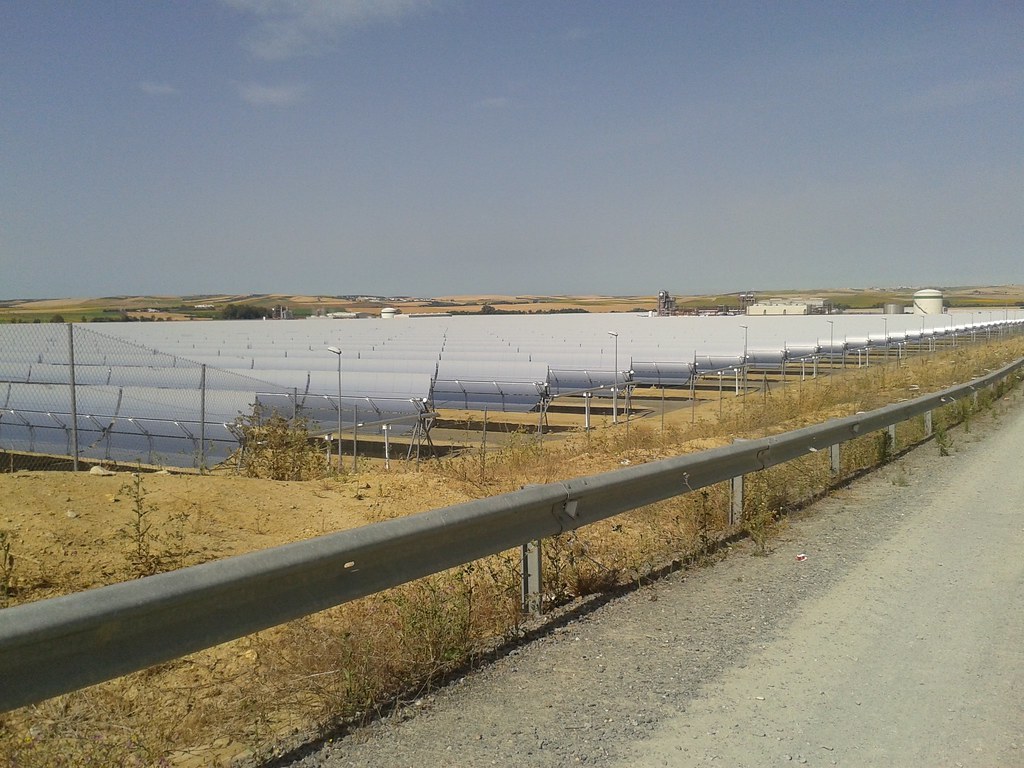
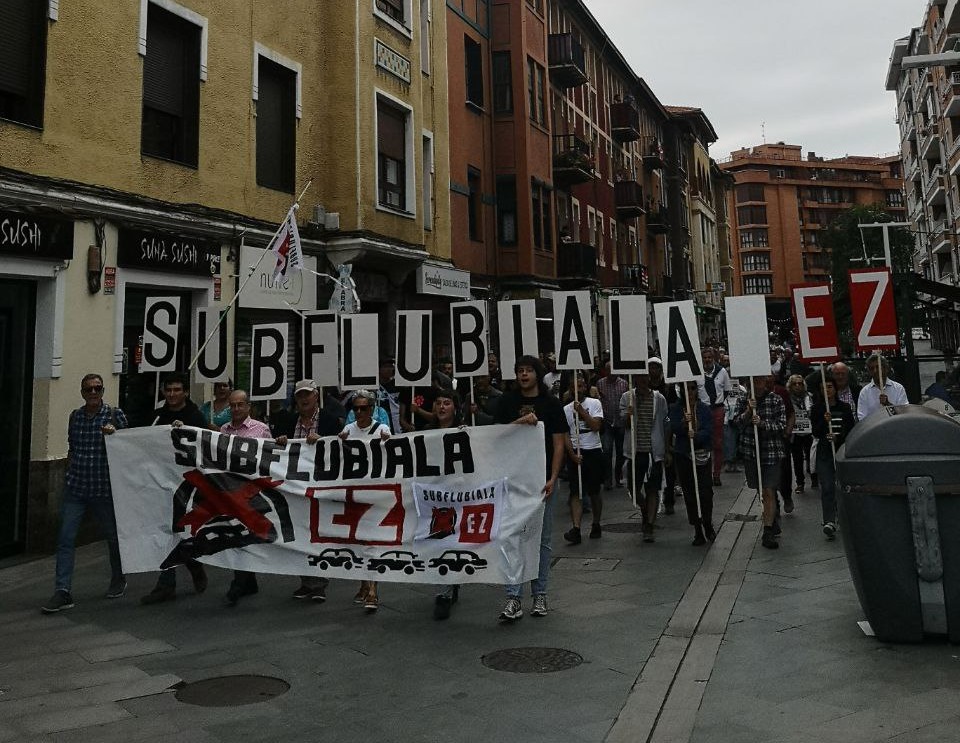
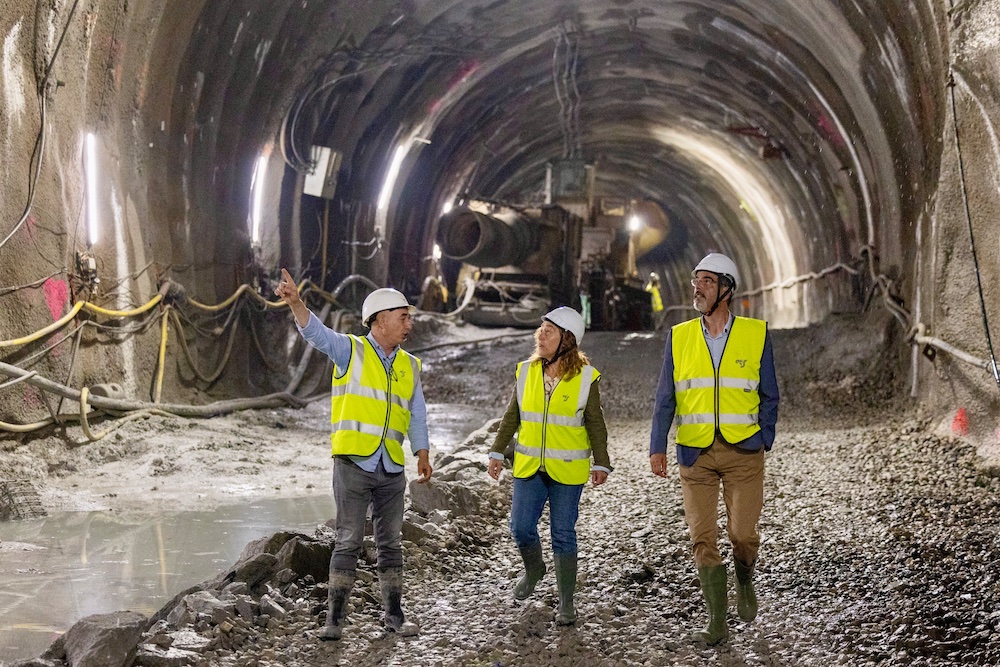

.jpg)

